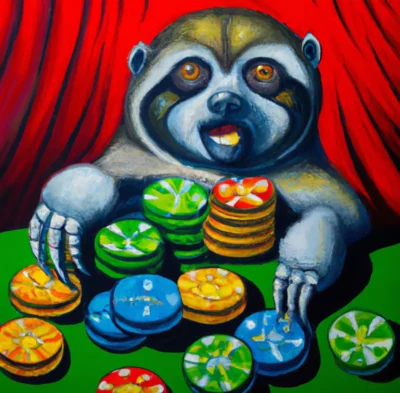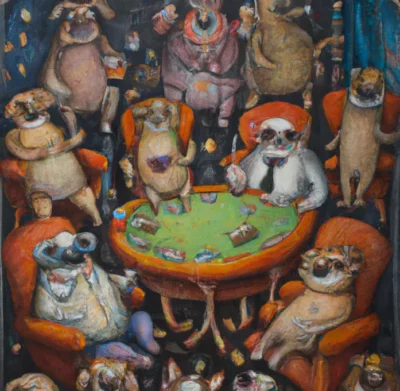When playing poker in a casino, it is essential to observe certain rules and poker etiquette. As a player, it is crucial to be aware of the unwritten rules of the game, to respect the employees and other players at the table, and to behave in a professional manner. We have compiled a list of 20 essential, but usually unwritten rules, or commandments, for poker players in live casinos.

1. Respect the Dealer
In a casino poker game, the dealer is the boss at the table. Regardless of the dealer’s experience level, they have the final say on the rules of the game and settle any disputes that arise. If there is any confusion regarding the interpretation of the rules, politely ask for clarification. If necessary, the dealer can call the floorperson to resolve any critical questions.

2. Respect the Floorperson
In a casino, the floorperson’s decision is always final. If the floorperson makes a ruling in a dispute at the table, their judgment is not up for discussion. If you disagree with their interpretation of the rules, you can politely discuss it with the floorperson away from the table. However, never argue with the floorperson or dealer at the poker table.

3. Respect the House Rules
Each casino may have its own set of poker house rules, which may differ from those at other casinos. These house rules, along with the generally applicable poker rules, are law and must be followed. If necessary, familiarize yourself with the casino’s rules of play beforehand and decide if you wish to play there under these rules. Once you begin playing, you have implicitly given your consent to the rules.

4. Respect Your Fellow Players
Regardless of how other players behave, never speak derogatorily about them. No matter how big of a bad beat you may have received or how you perceive another player’s mistake, maintain a professional attitude and refrain from making negative comments. If necessary, discuss the matter privately, but never in the presence of other players.

5. Do Not Touch Other Players’ Chips
Never touch another player’s poker chips without permission. For instance, if a player is not at the table during a tournament, do not reach into their stack to post their big blind. Only if the dealer asks you to may you make an exception to this rule. Attempting to touch another player’s chips without their consent can lead to misunderstandings and is considered highly inappropriate.

6. Act Quickly
When it is your turn to play, act as quickly as possible. If you have a significant decision to make, take your time, but remember that you are taking time away from all the other players at the table. In particular, execute trivial actions, such as folding before the flop with Seven-Two, as quickly as possible.

7. Be Attentive
It is important to maintain a general awareness of the game’s circumstances while participating in a hand. Specifically, you should be aware of when it is your turn to play and which players are involved in the hand. While it is permissible to use headphones while playing poker, it is advisable to avoid doing so if it leads to repeated instances of missed turns.

8. Don’t Act Out of Turn
You should never take action prior to your turn. In some casinos, premature actions can result in severe penalties – even seemingly innocuous actions like folding pre-flop in a cash game due to a restroom break. Such actions carry the potential risk of providing certain players with an unfair advantage, such as prior knowledge that a particular opponent is no longer in the game. As such, it is crucial to refrain from premature actions and to take action only when it is your turn to do so.

9. Tip the Dealer
It is customary to tip the dealer when winning a pot that is slightly larger than the blind in a cash game of poker. Even if you are dissatisfied with the dealer’s performance, it is appropriate to offer a token gratuity by pushing a chip toward the dealer and indicating that it is “for the staff.” Such tips are not only for the dealer but also for other casino staff members. For larger pots, it is customary to tip between one and two percent to the dealer. If you are so displeased with the casino that you are unwilling to provide a gratuity, it may be advisable to refrain from playing poker there altogether.

10. Protect Your Cards
It is solely your responsibility to safeguard their cards while playing. In order to ensure that your cards are not discarded or overlooked, they should be placed clearly visible on the table, not in your hand. Additionally, a chip or card protector should be placed on top of the cards to signify that the player is still actively participating in the hand.

11. Stack Your Chips properly
Particularly during tournaments, it is essential to stack your chips in piles of twenty in front of yourself. Additionally, higher-value chips should be placed in front, allowing opponents to quickly assess your chip stack. In many casinos, it is forbidden to conceal high-value chips behind smaller chips in an attempt to deceive other players.

12. Don’t Discuss Strategy
It is important to avoid discussing poker strategy while at the table. Specifically, it is advisable to refrain from criticizing the gameplay of fellow players. If an opponent is playing poorly, it is best to simply take advantage of their mistakes. If you wish to assist a player in improving their game, it is appropriate to speak with them privately off the table and recommend suitable reading material.

13. Don’t Slow Roll
When holding an almost unbeatable hand and facing an all-in wager from an opponent, it is imperative to immediately call and reveal your cards at the showdown. Procrastinating in this situation, a practice known as slow rolling, is considered an egregious violation of poker etiquette. Slow rolling is never humorous and can lead to feelings of humiliation for your opponent.

14. Show Your Hand in All-Ins
During a cash game, if both players are all-in before the river, it is generally considered proper decorum to reveal your hand if the opponent does the same. Refusing to provide an open showdown when your opponent is willing to show their cards is considered impolite. Additionally, such an open all-in can provide an entertaining spectacle for other players at the table, who are primarily present for recreational purposes.

15. Don’t Go Rabbit Hunting
Asking the dealer which cards would have appeared in a hand that ended prior to the river, a practice known as rabbit hunting, is considered poor form. Most casinos prohibit rabbit hunting, as it wastes everyone’s time.

16. Avoid String Bets
When making a bet or a raise, it is essential to smoothly place your chips in a single motion. Attempting to add chips to your stack after already placing some into the pot, known as a string bet, is against the rules in nearly all casinos. Such behavior can lead to confusion and can be used to provoke a reaction from an opponent by pretending to call.

17. Announce Your Actions
It is advisable always to make clear and distinct verbal announcements of your actions in poker. For instance, stating “Raise to 300” while touching your chips as many times as necessary to reach the appropriate amount. Such declarations prevent misunderstandings and facilitate the understanding of your betting by fellow players. Furthermore, verbal declarations are binding in poker.

18. Avoid Deceptive Behavior
Attempting to exploit the rules of the game and the casino to the detriment of other players is considered unprofessional behavior. Deceptive actions, such as murmuring to yourself about a potential raise, or suggesting to an opponent that you will raise, only to call instead, is called “angle shooting.” Such behavior can quickly make you an undesirable player to play with.

19. Be Mindful of the Space Around You
While a half-full table may provide ample space to stretch out, a ten-player table can become cramped quickly. Being considerate of others is essential, such as refraining from spreading your legs wide to display dominance. Such behavior is uncomfortable for others and disrupts the playing experience.

20. Practice Good Hygiene
In poker, players sit closely together for extended periods of time, and body odor can become a noticeable issue. To prevent discomfort for yourself and others, practicing good hygiene, such as showering before visiting the casino, is advisable.
